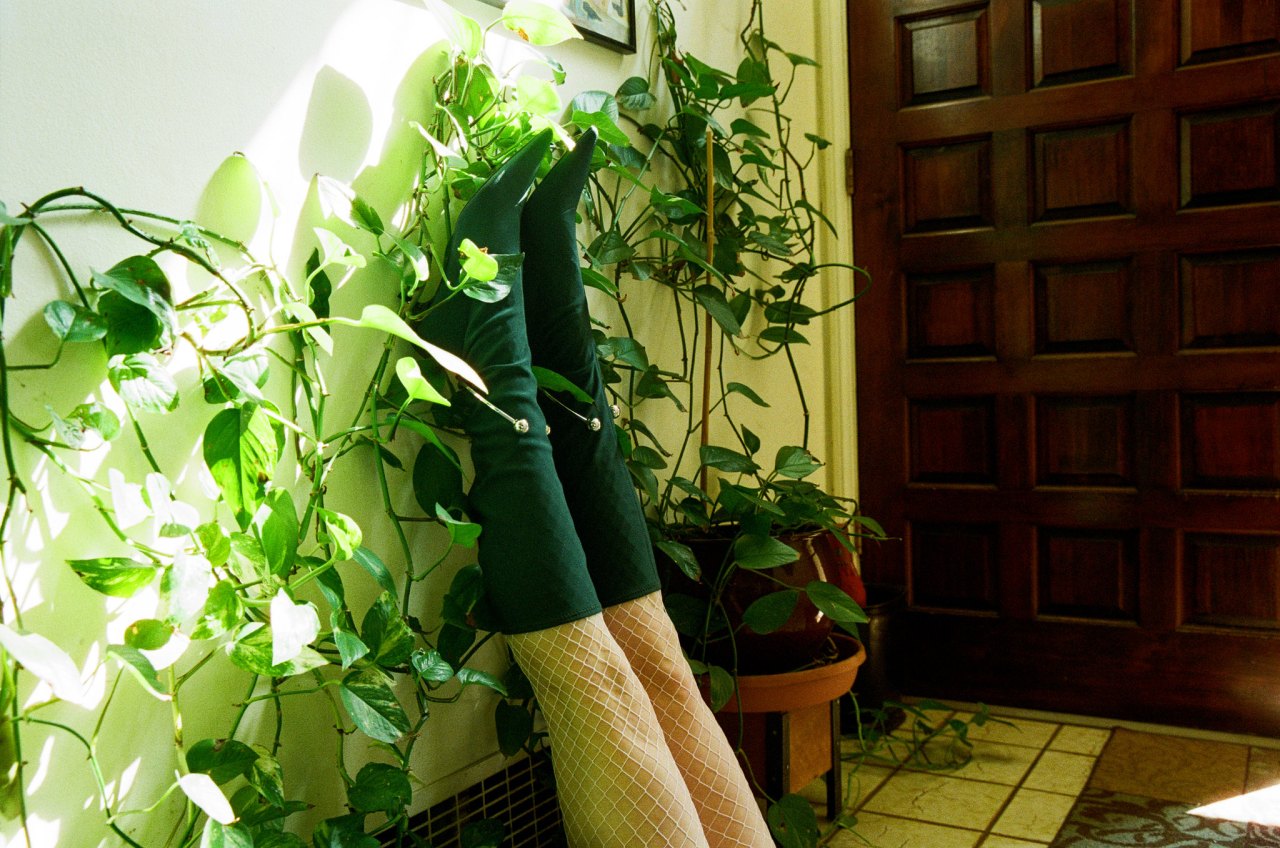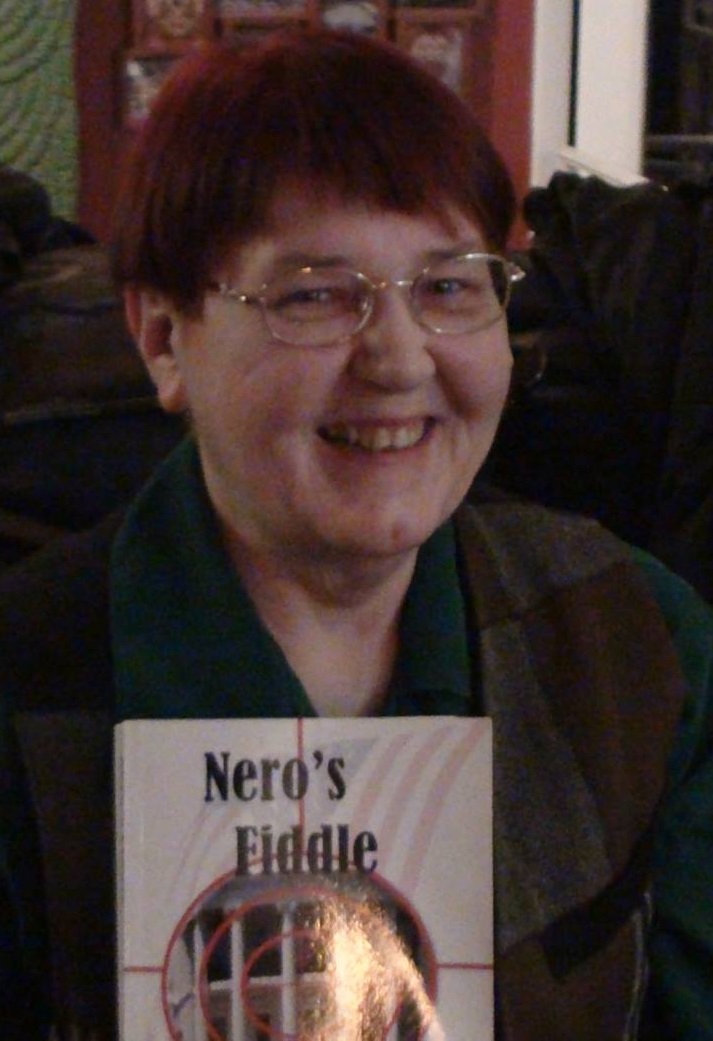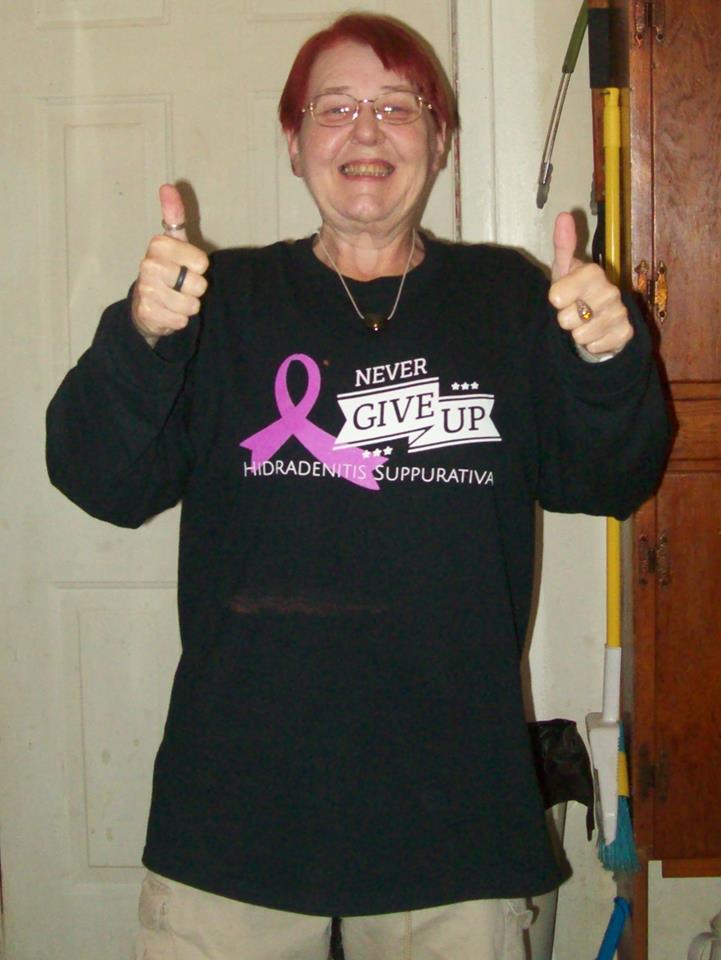She chose the latter.
Thought Catalog: Tell me about your background.
Where are you from?

What did you do before you became an HS advocate, author and founder?
Penny White: I am a native Georgian.
Growing up in the south, this was a culture shock, but I enjoyed it.

Most of my life, I worked as a Data Entry Operator.
Being able to bang out 98 WPM came in handy to pay the bills.
However, it required sitting for eight hours a day or more.

The entire time I worked in that capacity, it was always on writing projects.
Basically, I lost everything that mattered.
When did your HS journey begin?
What were your first symptoms?
PW: The first symptoms actually began to show up in my early twenties.
I would get these boils in my groin area that would drain and go away.
I was told it was clogged hair follicles and to keep the area clean.
As I got older, boils began to appear in my armpits.
Since I stopped shaving and stopped using underarm deodorant, I havent had any more appear under my arms.
So my journey began over thirty years ago.
I was officially diagnosed in 2012.
Whats the prognosis today?
What is life like for you now?
PW: I am currently in severe Stage 3.
Walking is painful and it is a challenge to drive my car.
However, I am primary caregiver for my 91-yr-old mother with dementia.
This necessitates my occasionally taking her to the doctor, picking up her prescriptions, or getting groceries.
I only drive when it is absolutely necessary.
Thankfully, this is not often.
Can you speak to any treatments that you currently use to ease symptoms?
What has and hasnt worked for you in the past?
PW: I have tried all the known remedies: turmeric, Hibiclens, peppermint soap.
I have a saying, more drain, less pain, which has proven to be true for me.
It also reduces the constant itching that accompanies HS.
I take acetaminophen to help ease the pain and recently invested in some CBD oil for the same reason.
Im not big on opioids but will probably need them after I have surgery.
The very best thing that works for me is the antibiotic Bactrim.
It reduces the swelling and drainage, thereby reducing the pain.
It is unfortunate for me that it is not a long-term antibiotic.
I only wish it worked as well for others.
Youre very inspiring in that despite not being able to work, you refuse to be unproductive.
Tell me about your books, and your website.
PW: I have been writing since the age of ten.
This is my first and foremost passion.
I decided to be a self-published author because traditional publishing houses are on the way out.
I can do my books, my way.
Im terrible at promotion and sales, but theyre out there.
My other books are a mixture of science fiction and young adult fantasy.
I started the HS Journal because there was no publication available about HS.
I would love nothing more than to be able to print the journal and distribute it to doctors offices.
Keeping my mind occupied and active helps me deal with HS.
What do you think are some of the most pervasive myths about HS?
PW: Lose weight.
You dont shower enough.
That is the trifecta that many people with HS hear from doctors.
None of these singly and/or collectively causes HS.
Research into the causes of HS are growing slowly, but they are growing.
Each new study brings to light another aspect of the HS condition and contributors to it.
For instance, a few recent studies suggest there may be a link between HS and the microbiome.
For some people, a change in diet helps to greatly reduce the symptoms of HS.
But that doesnt work for everyone.
There is also: Youre faking it.
Thats not a real illness.
You just want sympathy.
The list is long.
What have you learned from connecting to the HS community?
PW: The first thing I learned is that I am not alone in this battle.
I also learned that the severity of HS differs from one person to the next.
Some people may remain in Stage 1 or have a mild case of HS all of their lives.
Others may experience a progressive severity as they get older.
I learned that even the mildest case of HS has detrimental effects emotionally and mentally.
Ive learned that disabled doesnt mean incapable.
I have learned I am stronger than I ever thought possible.
Most importantly, I have learned there is no shame in having HS.
As humans, we are susceptible to a myriad of illnesses over which we have no control.
Is there any advice you have for those who are suffering from HS, and have maybe lost hope?
PW: Keep hope alive.
This is the most important thing you’re able to do when dealing with HS.
Keep your mind occupied.
Find a passion and pursue it, whether it is painting, knitting, writing, or raising awareness.
Reach out and make connections with others with HS.
Ask for moral support or help when you need it.
You are not alone.
Millions of other people around the world deal with the same thing you deal with on a daily basis.
We are all Warriors in this battle.
Make this your daily mantra: I have HS.
HS does not have me.